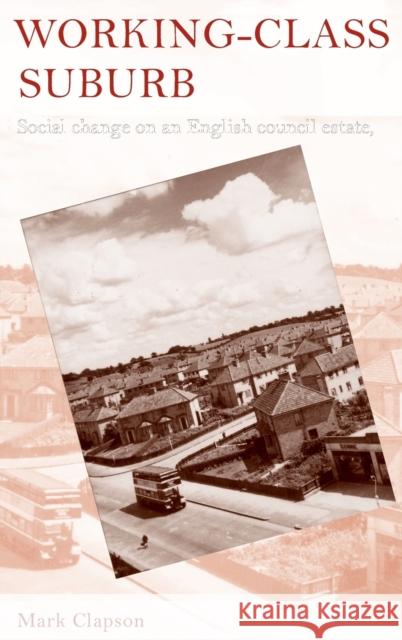Working-class suburb: Social change on an English council estate, 1930-2010 » książka
Working-class suburb: Social change on an English council estate, 1930-2010
ISBN-13: 9780719079511 / Angielski / Twarda / 2012 / 272 str.
In this detailed historical account of the birth and historical development of the Whitley council estate in Reading, Mark Clapson challenges the negativity associated with council estates and shows that this working-class suburb participated in wider trends in twentieth and twenty-first century England.
Originally a new council estate for slum dwellers, the Whitley Estate lacked facilities in its earliest years, but local campaigns soon established a living community in South Reading. Following the hardships of war, and through the postwar decades of expansion, Whitley changed as England changed, becoming less socially homogenous, and increasingly diverse in terms of tenure. Conservative housing policies changed the character of the estate, but never irrevocably so: any simplistic notion that the Whitley Estate was increasingly polarized and segregated from whatever mainstream society is, fails to grasp the complexities of its history. By focusing on housing and politics, on environmental campaigns and the uses of leisure on the Whitley Estate, Clapson questions whether there was a 'golden age' of working-class community and of social capital in England. He shows that there were always people willing to come forward to fight for the estate. Their efforts were particularly successful when given assistance from the local council and from other agencies, a finding that raises some questions for 'the Big Society'.
The book will be of interest to anyone studying urban history and social history, to professionals working in the fields of housing policy and housing studies, and to the growing number of academics interested in suburban studies.











